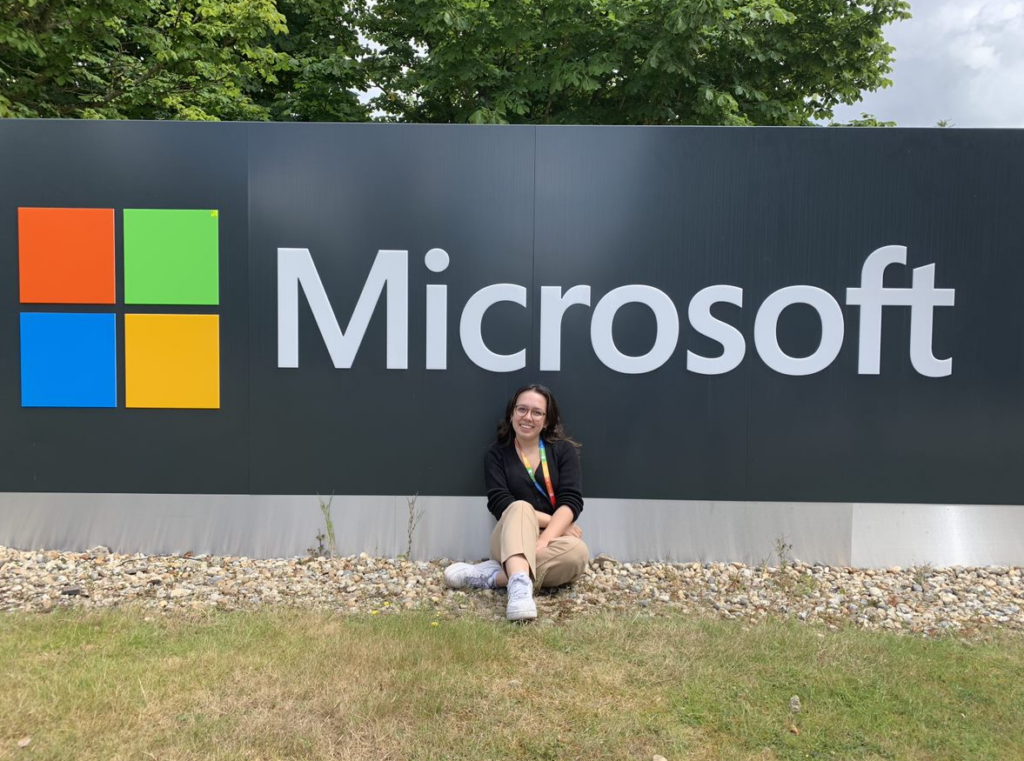Returning from a year in industry to complete their final year at Newcastle University, we interviewed Amy Jones about their time with Matillon. This is what they had to say:

Who did your industrial placement with?
My placement was with Matillion which is a data transformation/cloud data warehouse provider. It’s based in Manchester but has offices in a few places around the world.
What was your role?
Security Engineer Placement Student.
I worked in the IT and Security department across the Application Security and Cloud Security sub-functions.
Why did you do a placement?
I felt that getting some work experience under my belt would stand me in good stead when it came to applying for graduate positions because I would already know what to expect and I would be able to talk about what I’d done during interviews which hopefully would give me an advantage. Also, I felt that it would be easier for me to go into a graduate role if I had some time to get used to the work environment and already had a go at a security position while it was known to the company that I was still learning.
When did you start applying and how many places did you apply for?
I started applying at the start of the academic year and probably applied to 10 to 15 places. If I hadn’t heard back from Matillion in December, then I would have probably applied to more.
How was the application experience?
The application experience for Matillion was quite pain-free, you uploaded your CV and answered a couple of short essay questions and then after one interview with the CISO and GRC team lead, I was offered the position.
However, a couple of others I applied for were a bit of a longer, more complicated process. I did a lot of assessments during the early stages of application processes that were meant to gauge your soft skills and how your brain works, I did some coding tests, and some had video interviews before real interviews. Each company will be different.
What, if any, help did you get from the university when applying?
I applied during a year we were fully online, so I didn’t have as much exposure to the help as in normal years, however, I did read up on the placement advice on the website.
What work did you do over the course of your placement year?
Since Matillion’s security team is still fairly small, I had the chance to do a lot of varied work and get dug in straight away. Most of my time was spent on application security looking at things like threat modelling, ASVS, and DAST solutions. I got to know Burp Suite and OWASP ZAP really well as I explored vulnerability scanning and exploits with them. I was responsible for daily and monthly cloud security checks which gave me exposure to AWS. Throughout my placement I was able to become Matillion certified, set up and run a CTF for our team of security champions, be a Women in Tech champion, run a charity bake sale that raised over 500 pounds across Denver and Altrincham and set up and organise our security guild. I even presented a guild session on TLS and PKI.
How was the overall experience of doing a placement?
I absolutely loved my placement, if you are considering doing a placement year, I would highly recommend it. It helped that I had an amazing company to work for and awesome co-workers and line manager, but wherever you end up I think a year in the industry actually trying your hand at what you’ll experience once your degree is done is a fantastic way to boost your skills and stand out amongst graduate applicants. It lessened my worries about going into employment after university and it has set me up with fantastic connections for when I finish.
Would you like to go back to that company after your final year?
I would definitely love to go back to Matillion at some point in my career, whether that’s when I graduate or later down the line after a few years in a graduate cyber security role, I’m not quite sure yet. I would strongly recommend Matillion to anyone looking for a tech role though, they’re an incredible company that cares about every staff member and they offer remote or in-person work. Hopefully, I will get to return to Matillion eventually.



